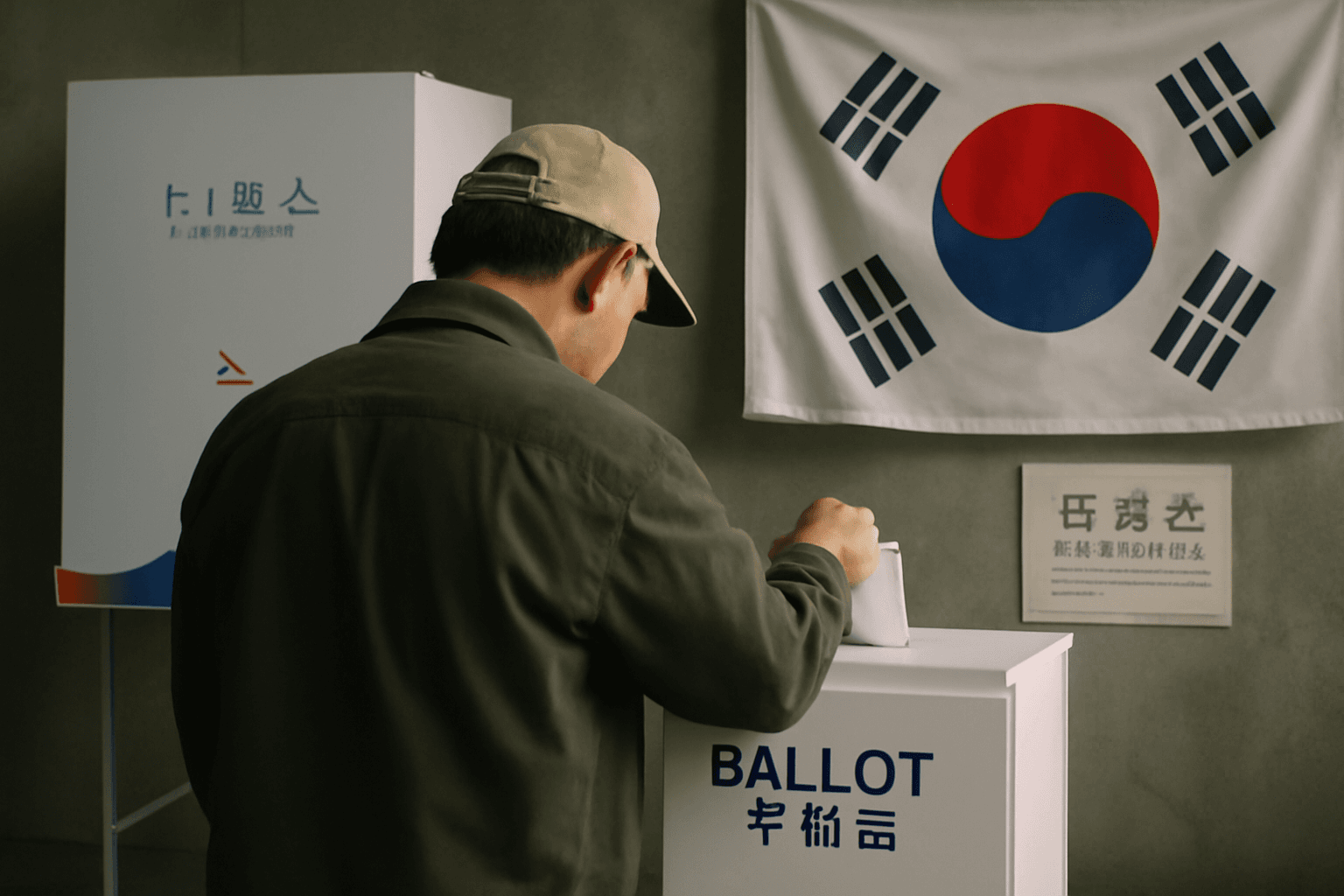Early voting commenced on May 29, 2025, in South Korea's presidential election, following a political crisis that ensued after former President Yoon Suk Yeol's controversial imposition of martial law last year.
The vote marks a significant moment as South Koreans seek to move past months of instability, including Yoon's impeachment and subsequent interim leadership challenges. The nation's economy, heavily reliant on exports, has faced pressures amid global trade disruptions and subdued domestic demand.
Leading the race is liberal candidate Lee Jae-myung of the Democratic Party, who consistently polls as the frontrunner. A recent Gallup survey indicated that 49% of respondents consider Lee the most suitable candidate. His main rival, Kim Moon-soo, the conservative ex-labor minister from the ruling People Power Party, trails at 35%.
While the official election day is June 3, early voting is available on May 29 and 30. Early ballot turnout has grown in recent elections, with 37% of voters casting early ballots in 2022. Midday reports from the National Election Commission noted an 8.7% turnout—the highest at that point in any past election.
Notably, overseas voting participation hit a record high, with about 80% of nearly two million eligible expatriates casting ballots.
Political analyst Kang Joo-hyun of Sookmyung Women’s University emphasized the significance of early voting in light of recent political upheaval, describing it as a reflection of the electorate’s determination to affirm democratic values.
Lee Jae-myung, voting in Seoul, remarked, "There’s a saying that a vote is more powerful than a bullet." He highlighted the importance of public participation to overcome challenges to civilian governance.
Polls reveal that over half of Lee’s supporters intended to vote early, compared to just 16% among Kim’s base. Kim, who cast his ballot in Incheon, framed his early vote as symbolic, referencing the site’s historical role during the Korean War.
Kim’s early voting surprised some conservative supporters amid prevalent conspiracy theories about electoral fraud during early voting periods. Nevertheless, he reassured his supporters, encouraging participation and promising rigorous oversight.
Despite trailing, Kim remains optimistic, asserting that his campaign is rapidly closing the gap and anticipates taking the lead before the official election day.
Kim gained prominence after Yoon’s suspension of civilian rule, notably by refusing to apologize publicly for the crisis. In contrast, Lee played an active role in opposing the martial law order, engaging in fierce parliamentary efforts to restore democratic governance.
The next president will face substantial challenges, including South Korea’s economic slowdown, record low birth rates, rising living costs, and a delicate geopolitical position amid escalating tensions between the United States and China.

